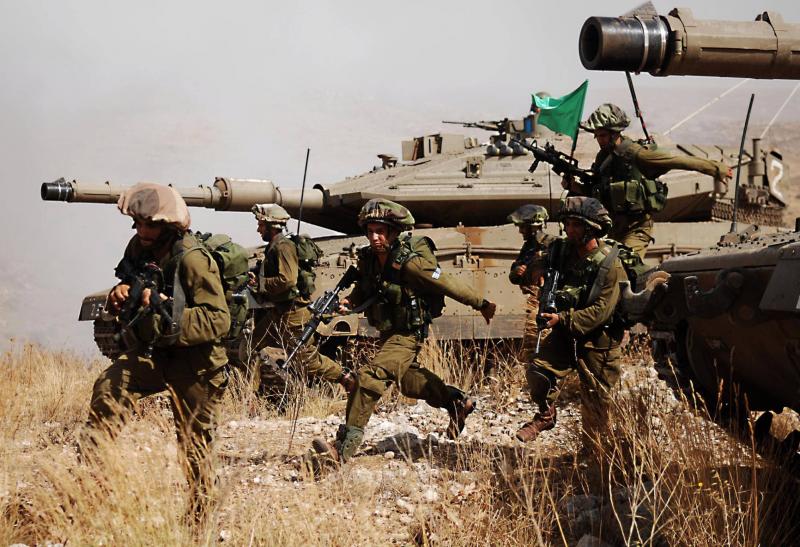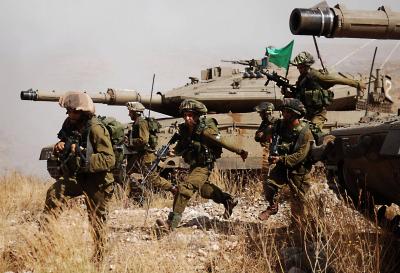The Israeli newspaper "Jerusalem Post" has outlined the objectives that Iran seeks to achieve through the engagement of "resistance factions" in Iraq, Syria, Lebanon, and the region in general, either in clashes with Israel or the United States. Among these objectives is to test "the unity of the fronts," gain greater regional influence, and present the Shiites and Sunnis united in fighting Israel. However, it noted that a resurgence of war after the current ceasefire could shift it to a "second stage" that is more dangerous.
In an analysis titled "What Does Hezbollah Achieve by Fighting the Israeli Army," the Israeli newspaper pointed out that Iran aims to gather various factions like "Hamas," Hezbollah, the Houthis, and Islamic Jihad, as well as groups in Iraq and Syria, to form a threat against Israel.
**The Lethal Attack**
The report stated that after the deadly attack by Hamas from Gaza on Israel, Hezbollah began its attacks from the north, which seemed to raise the possibility of a multi-front war against Israel, according to a broad Iranian plan aimed at "unifying the fronts" and attacks against Israel by these powers and factions.
The report highlighted that Iran recognizes it cannot defeat Israel through conventional warfare, but it believes it can challenge Israel by coordinating various types of threats against it. After noting that Hezbollah is considered Iran's strongest proxy, it pointed out that Iranian media reports provide an accurate view of the party's achievements over 50 days of fighting, which included daily attacks on Israel using rockets, mortar shells, and anti-tank missiles. It mentioned that the party recently used the heavy missile called "Borkan," which has a large warhead, adding that Iran praises and emphasizes these attacks.
**The Second Stage of War**
The report quoted the Iranian Tasnim agency, closely associated with the Revolutionary Guards, stating that "the first phase of the resistance struggle against the Zionist enemy during the Gaza War has undoubtedly ended." It added that if Israel resumes its "aggression after the temporary ceasefire ends, we will enter the second phase of the war, which may be more severe than the first phase."
The Israeli report reminded that Hezbollah has already declared its readiness for the next stage of the war, with the party's Deputy Secretary-General Sheikh Naeem Qassem stating that Israel "will see something from the resistance that it has never seen before." It quoted the Iranian agency indicating that "Hezbollah has clearly announced that it will not remain neutral in this war, as Hezbollah fought alongside Palestinian fighters," referring to the role that the party, according to the Iranian agency, played in forcing the Zionist regime to accept a ceasefire.
**"Unity of Resistance Fronts"**
According to the Israeli report, Hezbollah's attacks helped to illustrate the idea of "unity of the resistance fronts," including in Iraq and Yemen, which led Iran to rally all these proxies during the conflict.
The report continued that the attacks carried out by Hezbollah also reinforced its political popularity in Lebanon, which means that the rationale for entering the war is significant because it is not only about supporting "Hamas," but also about enhancing Iran's political influence in Lebanon, Iraq, and Syria. Additionally, the report stated that Iran hopes to emphasize that Shiite and Sunni organizations are now working together in this conflict, despite Iranian claims that "the American axis has tried to create sectarian divisions among Muslims in the region over the past few decades and tried to position Hezbollah as a Shiite resistance group against Sunnis." Yet, it noted that "today we see how Sunni circles sincerely and enthusiastically commend Hezbollah and the Shiites in defending Sunni Muslims in Palestine," which could heal the wounds of the wars in Iraq and Syria over the past two decades.
The report concluded by stating that Iran praises Hezbollah for establishing a "balance" that would make it difficult to resume fighting in Gaza after the current ceasefire ends.




